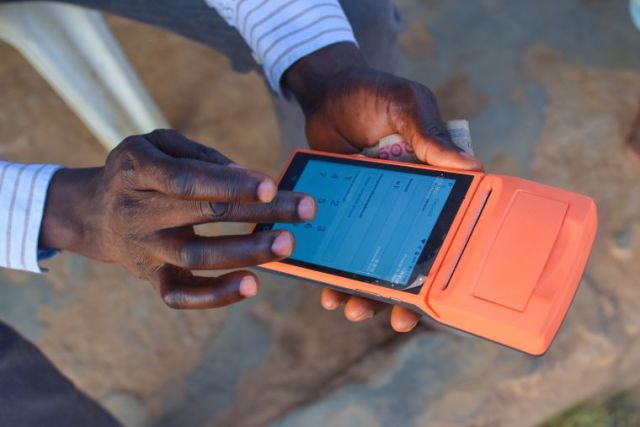The intricacies of cross-border money transfers in Africa are still being explored, with banks often proving the most expensive option. As the continent matures and experiences high entrepreneurial activity, facilitating trade opportunities and easing money transfers becomes crucial. Despite persistent legacy challenges, there are significant opportunities in the sector. ChitChat is positioned to bring a newly imagined way for money to move across and beyond the continent with its social commerce platform.
For instance, the Nigerian Naira has depreciated over 60% of its value over the last ten years. This decline, coupled with traditional banking infrastructure and regulatory barriers requiring multiple intermediaries to complete transactions, results in high fees and delays. Sending money from Zambia to Ghana for example involves currency conversions, routing through international banks, and managing fluctuating exchange rates, making the process both costly and slow. This is incompatible with consumer and business expectations today. When you are sending money home, or for a transaction, it is often in response to an emergency, or to an amazing offer that the last thing on your mind, is the waiting time, let alone exorbitant fees.
Fees paid to remittance service providers to send money to Africa average nearly 9%, the highest globally and three times the Sustainable Development Goal target of 3%. Speed, timing, and cost remain major challenges hindering business operations and personal remittances. Moreover, high fees charged by banks and traditional money transfer operators burden users significantly. This lack of transparency is not a bug, but a feature of the old world.
Despite these challenges, the increasing adoption of digital financial services, coupled with the growing penetration of mobile technology, offers opportunities for innovation. At ChitChat, our vision is a future where financial transactions are as fast and seamless as in developed markets. We want to bring context to the remittances being made. When you are chatting with your sister and she says your niece has lost her first tooth, you want to send $5 for ice cream. In our chat, you can easily do that, and in the future, when you look back, you will be reminded of why you sent the money in the first place, to feel all those feelings you felt when you sent that money. We are doing our part to keep families connected and trade happening at a rapid pace.
Internally, our research focuses on understanding current money transfer practices across the continent. Currently, individuals either collect cash or rely on multiple money transfer services that operate independently. This fragmented system lacks integration, leading to inefficiencies and missed opportunities for collaboration.
This idea stems from previous venture, Union54, which enabled Africans to issue debit cards and participate more equitably in the global economy. ChitChat differentiates itself from other fintech and MTOs through its integrated approach. By merging messaging and payments, it offers a unified platform where users can chat and transact simultaneously.
ChitChat aims to establish a lasting legacy by introducing a unique messaging app developed locally. While Asia has WeChat, Africa lacks a comparable indigenous product. This reliance on foreign platforms introduces vulnerabilities, as we entrust critical financial transactions to infrastructures developed outside our region. We should not have to yield control of vital infrastructure in order to do business, or to feel connected.
One of the significant hurdles for any fintech operating in Africa is navigating the diverse regulatory environments across countries being in tandem with innovation. Therefore, our approach begins with thorough market research. For example, if we’re interested in Kenya, we identify banks and tech companies already active there, focusing on those serving the diaspora and SMEs.
Our ultimate goal is to establish localised connections, much like the launched PAPSS initiative addressing intracontinental challenges. However, addressing transactions beyond Africa requires further solutions. Rather than navigating these complexities alone, we prioritise partnerships for integration, leveraging local expertise to effectively navigate regulatory nuances and cultural contexts. This approach not only overcomes technological hurdles but also helps in navigating currency risks inherent in multi-market operations.
Building this network is crucial; rather than obtaining 54 licences across Africa, we connect with peers who already hold licences in various countries. This strategy mirrors how giants like Visa were established—through a network of trusted partners. Our goal is to align visions and simplify financial services across the continent, creating a robust ecosystem that enhances reliability and scalability. The timing is also perfect – almost every sovereign country in Africa is today is concerned about overreliance on the USD as the currency of choice amongst its business class and even more so, about payment instruments that exist outside the remit of the Central Banks.
Through years of experience, we’ve learned that real impact comes from collective effort. At ChitChat, we also believe in empowering local ecosystems across Africa through accessible technology. Our APIs enable businesses to integrate payment solutions directly, bypassing expensive third-party software. Whether receiving payments via bank accounts or mobile money, or issuing custom cards, our role is to collaborate, ensure widespread adoption and market penetration.
Starting in Zambia, we are shaping ChitChat to become the ultimate money management app ever. Partnering with industry giants like Mastercard, which boasts an extensive network, positions ChitChat as a go-to provider of global remittance solutions. In the coming six months, ChitChat will introduce USD cards, roll out APIs for card issuance, and enable remittances across five additional countries: China, India, Tanzania, Zimbabwe, and South Africa. Our hope is that by the end of 2024, we will have enabled remittances to over 30 countries around the world and shown glimpses of what a homegrown messaging alternative can look like for Africa.

